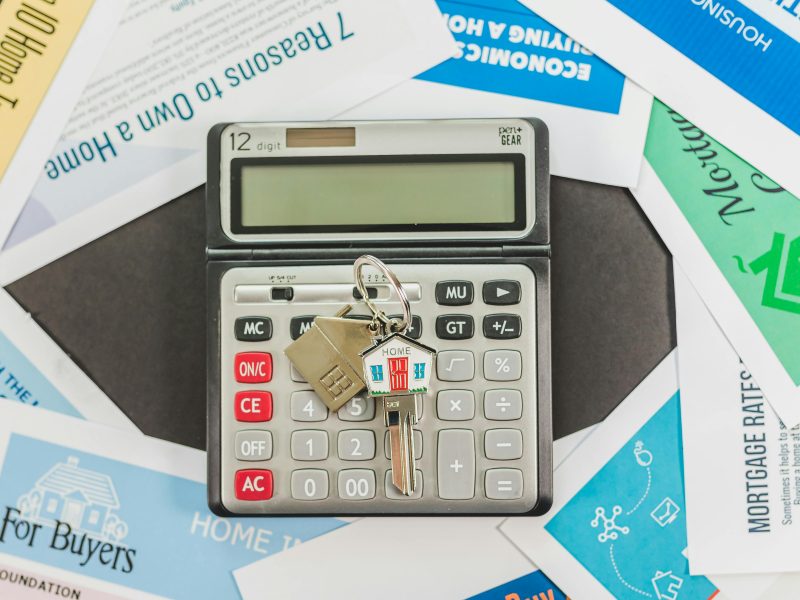Fueling Your Business Dreams with an SBA Loan
Fueling Your Business Dreams with an SBA Loan, Fueling Your Business Dreams with an SBA Loan: Owning a small business is hugely rewarding but also comes with financial challenges. Traditional bank loans aren’t always accessible or affordable for entrepreneurs. This is where SBA loans excel by providing favorable terms specifically for small businesses.
This comprehensive guide explains how SBA loans can power your venture’s growth. We’ll cover the different SBA programs, eligibility rules, application requirements and key benefits. Understanding these powerful loans empowers you to maximize funding opportunities and bring your business vision to life.
Are you ready to learn how SBA backing can ignite your startup or existing company’s potential? Your journey to financing success starts now.
What is an SBA Loan?
The SBA (Small Business Administration) works to aid, counsel, assist and protect the interests of small businesses. Its loan programs provide:
– Loan guarantees to approved lenders, reducing their risk up to 85% for loans up to $150k and 75% for larger amounts.
– Lower borrowing costs through reduced interest rates, fees and longer terms than typical bank loans.
– Easy qualification for new businesses that can’t get conventional financing elsewhere.
By combining government guarantees and private lenders, SBA loans offer entrepreneurs affordable capital on favorable terms.
SBA Loan Options
The SBA offers different loan programs to suit various business needs:
– 7(a) Loans: Up to $5 million for working capital, supplies, equipment, real estate and more operational expenses.
– 504 Loans: Fixed-rate financing for major assets like commercial real estate and equipment over $50k, with monthly payments as low as 10 years.
– Microloans: Up to $50k for startup and development costs from nonprofit intermediary lenders.
Research which option best fits your specific funding requirements and intended uses.
SBA Eligibility Requirements
To qualify for an SBA loan, businesses generally need to:
– Be organized for profit and operate primarily in the United States.
– Meet SBA industry-specific size standards for average annual business receipts or number of employees.
– Contribute at least 10% of the loan amount as owner’s equity injection.
– Show at least two years of business history or experience in that industry.
– Demonstrate creditworthiness and ability to repay the loan.
Confirm eligibility by consulting directly with an SBA-approved lender.
The Application Process
After establishing eligibility, apply by submitting comprehensive documentation:
– Completed loan application and personal financial statements.
– Business plans with 2 years historical and 3 years projected financials.
– Tax returns, income statements, balance sheets for the last 3 years.
– Personal and business credit reports along with collateral being offered.
With the SBA’s backing, approval can often occur within 2-3 weeks assuming timely submissions.
Key Benefits of SBA Loans
– Long terms like up to 25 years lead to lower monthly payments than conventional loans.
– Fixed and variable rate options provide flexibility.
– 90%+ approval rate thanks to guaranteed collateral from the SBA.
– No prepayment penalties allow paying the loan off early without fees.
– Second chance for those who don’t qualify at traditional banks.
SBA financing fuels growth at an affordable price without breaking the bank.
Armed with knowledge of the process, you’re ready to consult lenders and seize your funding moment. Your journey to entrepreneurial success starts here – let an SBA loan ignite liftoff!
Understanding SBA Loans
SBA loans are not directly provided by the U.S. Small Business Administration but are instead issued by approved lenders, such as banks and credit unions, with partial guarantees from the SBA. This guarantee reduces the risk for lenders, allowing them to offer more favorable loan terms to small businesses.
SBA loans are specifically designed to support small businesses that may have difficulty securing traditional financing due to limited credit history, insufficient collateral, or higher perceived risk. These loans offer lower down payments, longer repayment terms, and competitive interest rates, making them an excellent option for entrepreneurs looking to grow their businesses.
Types of SBA Loans
The SBA offers several loan programs to cater to different business needs. Below are the most common types:
1. SBA 7(a) Loan Program
The SBA 7(a) loan is the most popular and versatile loan program. It can be used for a variety of business purposes, including purchasing equipment, working capital, refinancing debt, and acquiring commercial real estate. Loan amounts can go up to $5 million, with repayment terms extending up to 25 years for real estate and 10 years for other uses.
2. SBA 504 Loan Program
This loan is ideal for businesses looking to invest in fixed assets such as commercial property, heavy machinery, or equipment. It involves collaboration between a Certified Development Company (CDC) and a lender. Typically, the lender covers 50% of the loan, the CDC funds 40%, and the borrower provides a 10% down payment. SBA 504 loans offer long-term, fixed-rate financing with terms of 10, 20, or 25 years.
3. SBA Microloan Program
Designed for small businesses and startups needing a smaller amount of capital, the SBA Microloan program provides loans of up to $50,000. These loans can be used for working capital, inventory, supplies, and equipment but not for real estate or debt refinancing. They are administered through nonprofit community-based organizations that also provide business training and technical assistance.
4. SBA Disaster Loans
Businesses affected by natural disasters can apply for SBA disaster loans to help rebuild and recover. These loans provide low-interest financing to repair damaged assets, replace equipment, and cover operational expenses during recovery.
5. SBA Express Loans
The SBA Express Loan program is designed for businesses needing quick access to funds. While the loan amounts are smaller (up to $500,000), approval times are faster, typically within 36 hours. This option is best for businesses requiring immediate capital for short-term needs.
Benefits of SBA Loans
SBA loans offer several advantages over conventional loans, making them a preferred choice for many business owners. Some key benefits include:
1. Lower Interest Rates
Because SBA loans are partially guaranteed by the government, lenders can offer lower interest rates compared to traditional loans. This translates into reduced borrowing costs and greater affordability.
2. Longer Repayment Terms
SBA loans come with extended repayment terms—up to 25 years for real estate loans and 10 years for working capital. Longer terms mean lower monthly payments, reducing financial strain on the business.
3. Lower Down Payments
Most SBA loans require lower down payments than traditional loans, making them accessible for small business owners with limited capital.
4. Flexible Use of Funds
Depending on the loan type, SBA loans can be used for a wide range of purposes, including equipment purchases, inventory, hiring employees, and even acquiring other businesses.
5. Support for Startups and Small Businesses
Many SBA loan programs cater specifically to small businesses and startups, making it easier for new entrepreneurs to obtain financing and build a successful business.
How to Qualify for an SBA Loan
While SBA loans offer many benefits, obtaining one requires meeting specific eligibility criteria. Here are some general qualifications:
1. Business Size and Type
Your business must meet the SBA’s definition of a small business, which varies by industry. The business must also operate for profit and be located in the U.S.
2. Good Credit Score
Most SBA lenders require a credit score of at least 680. A higher score improves your chances of approval and may secure better loan terms.
3. Strong Business Plan
A well-documented business plan outlining your company’s mission, goals, financial projections, and repayment strategy is crucial for approval.
4. Sufficient Cash Flow
Lenders will evaluate your company’s cash flow to determine if you can repay the loan. Having a solid financial record enhances your credibility.
5. Personal Investment
Many SBA loan programs require owners to invest their own money in the business. Lenders want to see that you have a financial stake in the company’s success.
SBA Loan Application Process
Applying for an SBA loan can be a detailed process, but following these steps will improve your chances of approval:
Step 1: Determine Your Loan Needs
Identify the purpose of the loan, how much capital you require, and the loan program that best suits your needs.
Step 2: Gather Required Documents
Commonly required documents include:
- Business and personal tax returns
- Financial statements (profit and loss, balance sheet)
- Business plan
- Personal and business bank statements
- Collateral documentation (if required)
- Legal documents (licenses, leases, agreements)
Step 3: Choose an SBA-Approved Lender
Research and select an SBA-approved lender that offers the loan program you need. Banks, credit unions, and online lenders are common options.
Step 4: Submit Your Application
Complete the SBA loan application and provide all necessary documents. Ensure your application is accurate and complete to avoid delays.
Step 5: Wait for Approval
Approval times vary by loan type. SBA Express Loans are typically approved within 36 hours, while other SBA loans can take several weeks.
Step 6: Receive Funds and Start Repayment
Once approved, funds are disbursed according to the loan agreement. Make timely payments to maintain good credit standing and eligibility for future financing.
Conclusion
Fueling Your Business Dreams with an SBA Loan, SBA loans provide a valuable opportunity for small business owners to access the capital needed to start, expand, or sustain their ventures. With lower interest rates, longer repayment terms, and flexible usage options, these loans can be instrumental in fueling your business dreams. While the application process may be rigorous, proper preparation and a strong financial profile can significantly improve your chances of securing an SBA loan. If you’re ready to take your business to the next level, exploring SBA loan options might be the right move for you.




